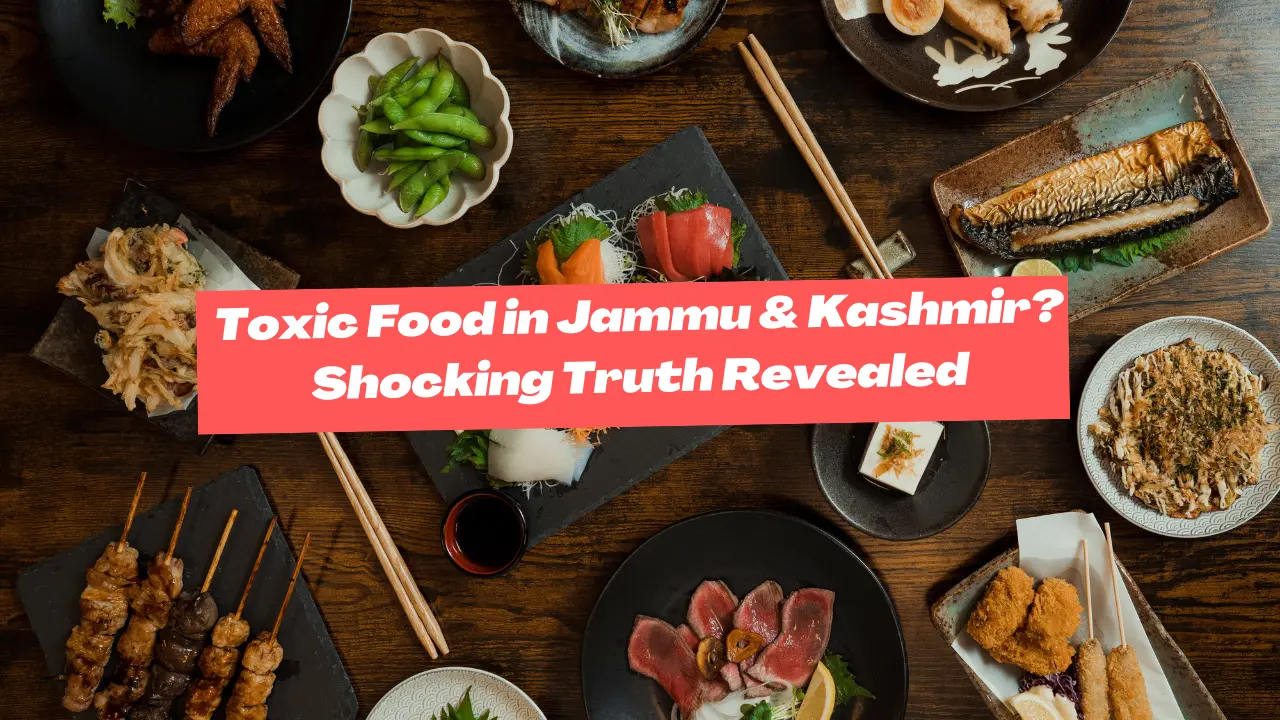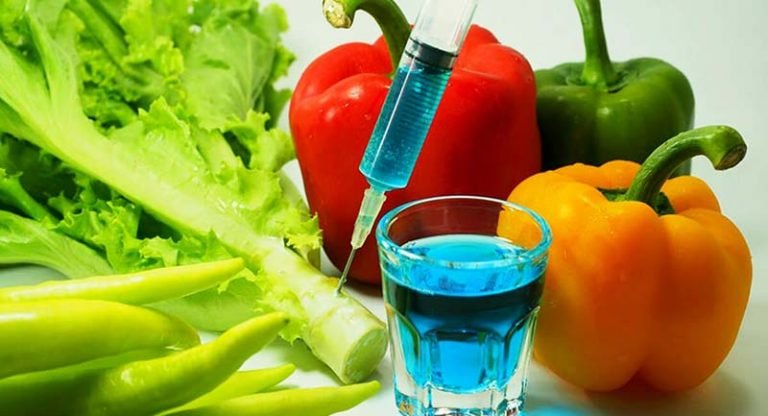Food safety in India has reached a critical point, with adulteration and contamination threatening public health every single day. In Jammu & Kashmir, recent events have exposed Food Adulteration in Jammu & Kashmir, how dangerous the situation has become — from toxic chemicals in fruits to fake dairy products infiltrating local markets.
The Alarming Rise of Food Adulteration in India
Recent data from the Food Safety and Standards Authority of India (FSSAI) paints a grim picture — one in every four food samples tested in the past three years has failed quality checks. This means a significant portion of what we consume may be unsafe, contaminated, or outright poisonous.
Fruits and vegetables, once considered nature’s healthiest gifts, are not spared either. Farmers and suppliers have been found using:
- Calcium carbide to ripen mangoes and bananas artificially.
- Copper sulphate to speed up fruit ripening.
- Oxytocin hormone to accelerate the growth of pumpkins, watermelons, cucumbers, brinjals, and gourds.
These substances can cause severe health problems — from hormonal imbalances to long-term organ damage.
The Lakhanpur Loophole – A Gateway for Unsafe Meat
Kashmir’s ongoing crackdown on unsafe meat and chicken sales has exposed another shocking reality — authorities lack any real mechanism to monitor how frozen or dressed meat enters the region.
At Lakhanpur Toll Plaza — the only road gateway to Jammu & Kashmir — officials admit they collect taxes from vehicles but do not inspect or track the quality of the products being transported.
“We collect taxes only because the law mandates it. We do not keep a count of meat or chicken entering from the toll plaza,” said Ajeet Singh, Deputy Commissioner, State Taxes, Enforcement, Lakhanpur.
This oversight means potentially unsafe meat products can easily make their way to local markets without any checks.
Fake Paneer Syndicate Busted in Jammu
In a major win for consumer safety, Jammu Police recently busted a massive fake paneer racket. Acting on a tip-off, authorities seized over 800 kilograms of adulterated paneer being smuggled from Delhi to Katra. Three suspects were arrested for running the dangerous distribution network.
Such fake dairy products often contain starch, detergent, or synthetic chemicals to mimic real milk solids — making them a serious health hazard. Consuming these can cause food poisoning, kidney damage, and other chronic illnesses.
Kashmir’s Rotten Meat Haul: Over 2,000 Kilograms Seized
The situation in Kashmir is even more disturbing. In a massive enforcement operation across Srinagar, Pulwama, and Ganderbal, food safety teams uncovered a horrifying reality—over 2,000 kilograms of rotten and unsafe meat destined for public consumption.
The biggest single bust happened after a tip-off led officials to a nallah near Chinpoh Lasjan B on the outskirts of Srinagar, where 800 kilograms of decaying meat had been dumped. Additional seizures included 600 kilograms from Khandey Colony, Nowgam, and another 600 kilograms from a nearby Nowgam location.
In another shocking case, 1,200 kilograms of rotten mutton were confiscated from Srinagar’s Zakura Industrial Estate, revealing the scale of contamination plaguing the valley.
Read also: Golden Temple to Vaishno Devi: New Superfast Vande Bharat Now in Service
Why This Matters for Every Consumer
These incidents highlight an urgent need for stronger food safety enforcement in Jammu & Kashmir. Adulterated food isn’t just about bad taste or poor quality — it’s about the silent damage it can cause to your health over time.
From toxic fruits and vegetables to unmonitored meat imports and fake dairy products, the risks are everywhere. Consumers must be more vigilant, demand stricter regulations, and support authorities in cracking down on unsafe food practices.
How to Protect Your Family from Adulterated Food
- Buy from trusted local vendors with a reputation for quality.
- Inspect food carefully for unnatural colors, odors, or textures.
- Wash fruits and vegetables thoroughly to reduce chemical residue.
- Test paneer and milk at home using simple purity tests.
- Report suspicious products to local food safety authorities.
Bottom Line: Food adulteration in Jammu & Kashmir is not just a regulatory issue — it’s a public health crisis. Authorities must close loopholes at entry points like Lakhanpur, conduct regular market inspections, and prosecute offenders without delay. Until then, the responsibility to protect your family’s health starts in your own kitchen.
















